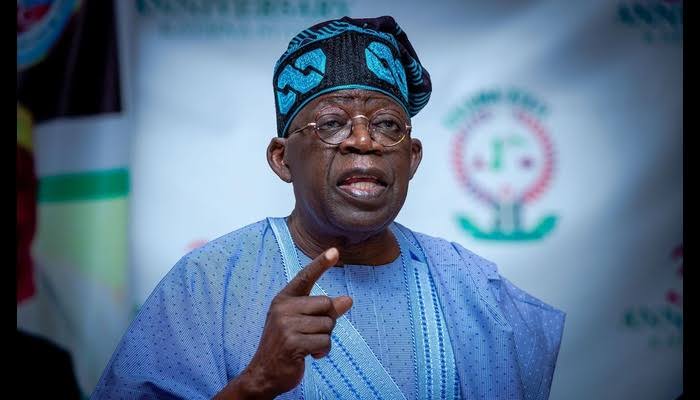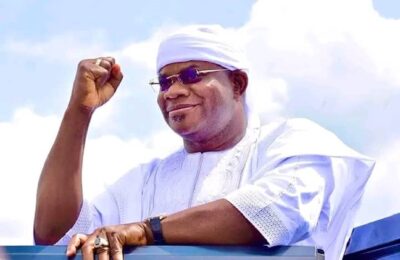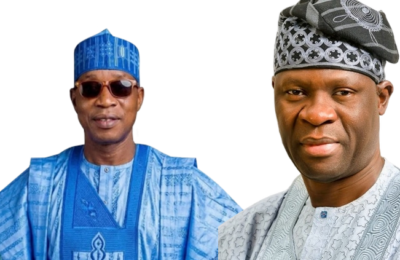By Musa Bakare.
What manner of man is President Bola Ahmed Tinubu, the name that dominates Nigeria’s political lexicon, the man who built Lagos, shaped a generation of leaders, and now holds the destiny of a nation in his hands ?
To define him merely as a politician is to underestimate him; to call him a strategist is to simplify him. Asiwaju Tinubu is an institution, a fusion of vision, audacity, and the rare capacity to turn ordinary men into extraordinary actors on the stage of national destiny.
In a country where many leaders seek power for applause, Asiwaju Tinubu seeks it for purpose. His political journey reads like a strategic masterpiece carefully plotted, patient in execution, and relentless in vision.
President Tinubu’s story did not begin in the corridors of power but in the crucible of struggle. As a member of the National Democratic Coalition (NADECO), he fought fiercely against military dictatorship when silence was safer. Exile did not break him; it refined him. He returned to Nigeria not as a victim of persecution but as a conqueror of adversity.
In 1999, when he became Governor of Lagos State, he inherited a city drowning in chaos, revenue leakages, infrastructural decay, and bureaucratic paralysis.
Within eight years, he transformed Lagos into Nigeria’s model of fiscal autonomy and good governance. He built institutions that continue to function nearly two decades after his exit, a feat few African leaders can claim.
Asiwaju Tinubu’s Lagos was not only about roads and bridges; it was about people and systems. He redefined governance as an enterprise of human capital. His administration discovered, trained, and deployed some of Nigeria’s finest public administrators, men and women who today serve as governors, ministers, legislators, and technocrats across the federation.
Yemi Osinbajo, Babatunde Fashola, Rauf Aregbesola, Akinwunmi Ambode, Kayode Fayemi, Babajide Sanwo-Olu, James Abiodun Faleke, and many others are products of his vision for leadership succession. He saw in each of them not just competence, but continuity.
He understood that great leaders do not die when they leave office; they live through the institutions and people they build.
Politics, for Asiwaju Tinubu, is not an emotional exercise but an intellectual architecture. He builds with precision. He organizes with discipline. His political structure spanning from Lagos to the farthest corners of the federation is built on loyalty, mentorship, and shared purpose.
When others rely on spontaneous popularity, Jagaban Tinubu relies on planning. He sees ten moves ahead while others are still making their first. That is why, no matter the conspiracy or gang up, he prevails. He knows the art of negotiation, the patience of a chess player, and the endurance of a marathoner.
It is no coincidence that since 1992, he has never lost an election, not once in over three decades. That record speaks of discipline, foresight, and unmatched political organization.
When President Bola Ahmed Tinubu assumed the presidency in May 2023, Nigeria stood at a crossroads. The economy was fragile, corruption was systemic, and confidence was collapsing. Yet, true to his character, Asiwaju Tinubu chose the path of courage, not convenience.
He removed the fraudulent fuel subsidy that had bled the nation for decades. He unified the exchange rate to end the era of double dealing and rent seeking. He reopened the nation’s industrial soul, reviving Ajaokuta Steel, supporting private steel producers, and prioritizing manufacturing and infrastructure as engines of real growth.
While critics shouted and comfort seekers complained, President Tinubu stood firm, knowing that pain is the price of national rebirth. History rarely celebrates those who please the crowd; it immortalizes those who save the nation.
Behind the political giant is a deeply human leader, accessible, humorous, and generous. President Tinubu’s home has always been an open arena for ideas, debate, and mentorship. He listens more than he speaks, but when he does, his words carry the weight of experience and the clarity of vision.
He does not abandon people when they stumble; he redeems them. Those who once opposed him often end up working with him because he understands that in politics, enemies of yesterday can become allies of tomorrow. That is the mark of a statesman, not a mere politician.
No leader in Nigerian history has demonstrated the combination of intellect, courage, and strategic foresight that President Tinubu embodies. He does not operate on impulse; he works on design. His style may be misunderstood, his methods sometimes controversial, but his results are undeniable.
As the architect of modern Lagos and now the reformer of modern Nigeria, President Tinubu’s journey is the story of a man born ahead of his time, a man whose destiny is intertwined with the destiny of the nation itself.
Asiwaju Bola Ahmed Tinubu is a builder of men, a reformer of systems, a survivor of storms, and a strategist of destiny. He is proof that leadership is not about perfection but persistence not about applause but achievement.
History will remember him not merely as a president, but as the man who refused to be ordinary the man who turned politics into purpose, and Nigeria’s challenges into opportunities for rebirth.
Asiwaju Bola Ahmed Tinubu is not just a politician, he is a phenomenon and his story is still being written.
– Musa Asiru Bakare, Member, All Progressives Congress (APC) and Political Analyst, writes from Lokoja, Kogi State.




